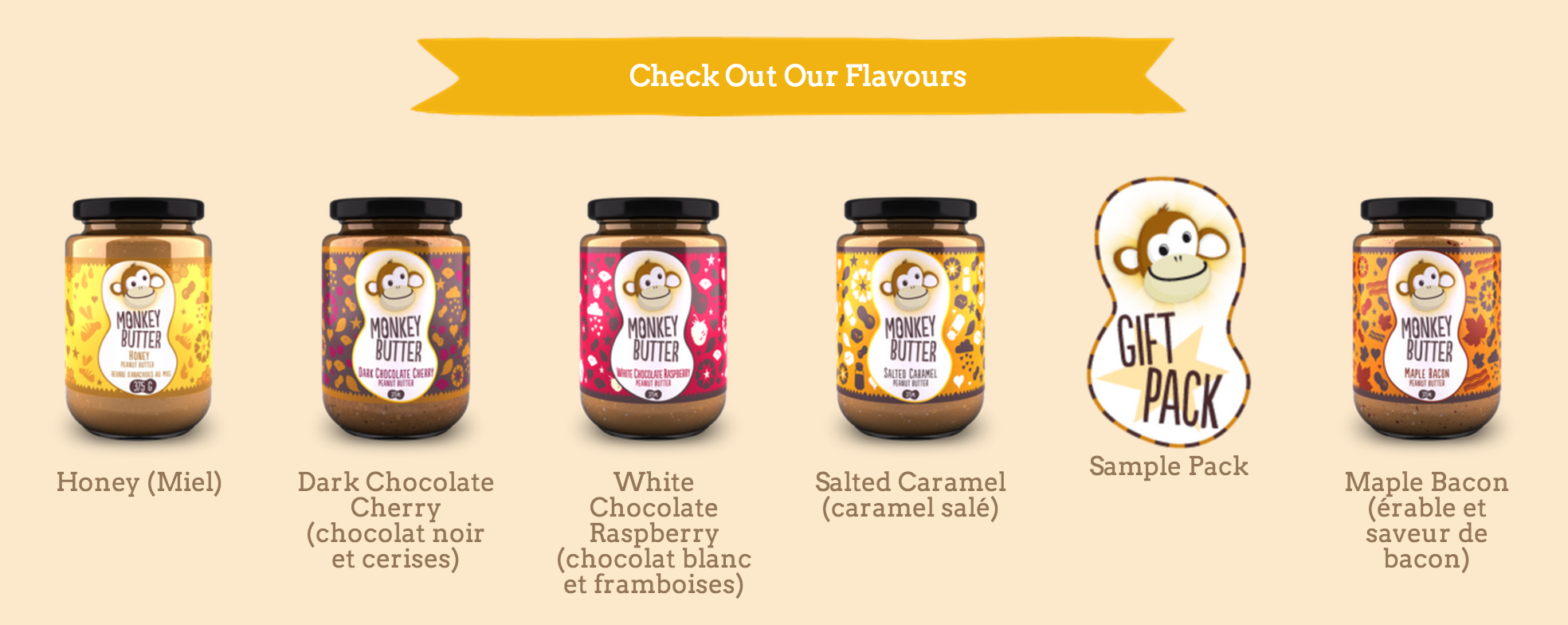Last weekend, I was walking in Urban Fare, and ended up in the peanut butter aisle. I love peanut butter, so it was inevitable I would end up there. Walking down the aisle, I was expecting to see Kraft, a very dominant brand in the food industry. However, the first brand that caught my eye was Monkey Butter. I have never heard of the brand before but I was intrigued by it. One successful marketing strategy, I thought to myself, was where the company positioned the product itself on the shelves of Urban Fare. The reason why it was the first product to catch my eye was because the product was directly at eye level. This grabbed my attention compared to the other brands I didn’t even notice on the lower shelves.
Following up on my curiosity, I found out that this brand is, in fact, a Vancouver based company. Monkey Butter brands itself on the fact that their peanut butter is made in small batches and with only natural ingredients. Not only this, but they state that their peanut butter is suitable for vegetarians as well. These two points of differentiation successfully allows them to position themselves apart from Kraft peanut butter, which is more mass-produced. Consumers can think of Monkey Butter as a healthier substitute to Kraft peanut butter. Because health is currently a big social trend, Monkey Butter has captured a growing need for healthy food products, giving them a good sustainable competitive advantage.

By having appealing packaging with cute designs and colours, Monkey Butter has been able to attract consumers to a seemingly basic food product. This definitely changes the way consumers are used to seeing peanut butter.
